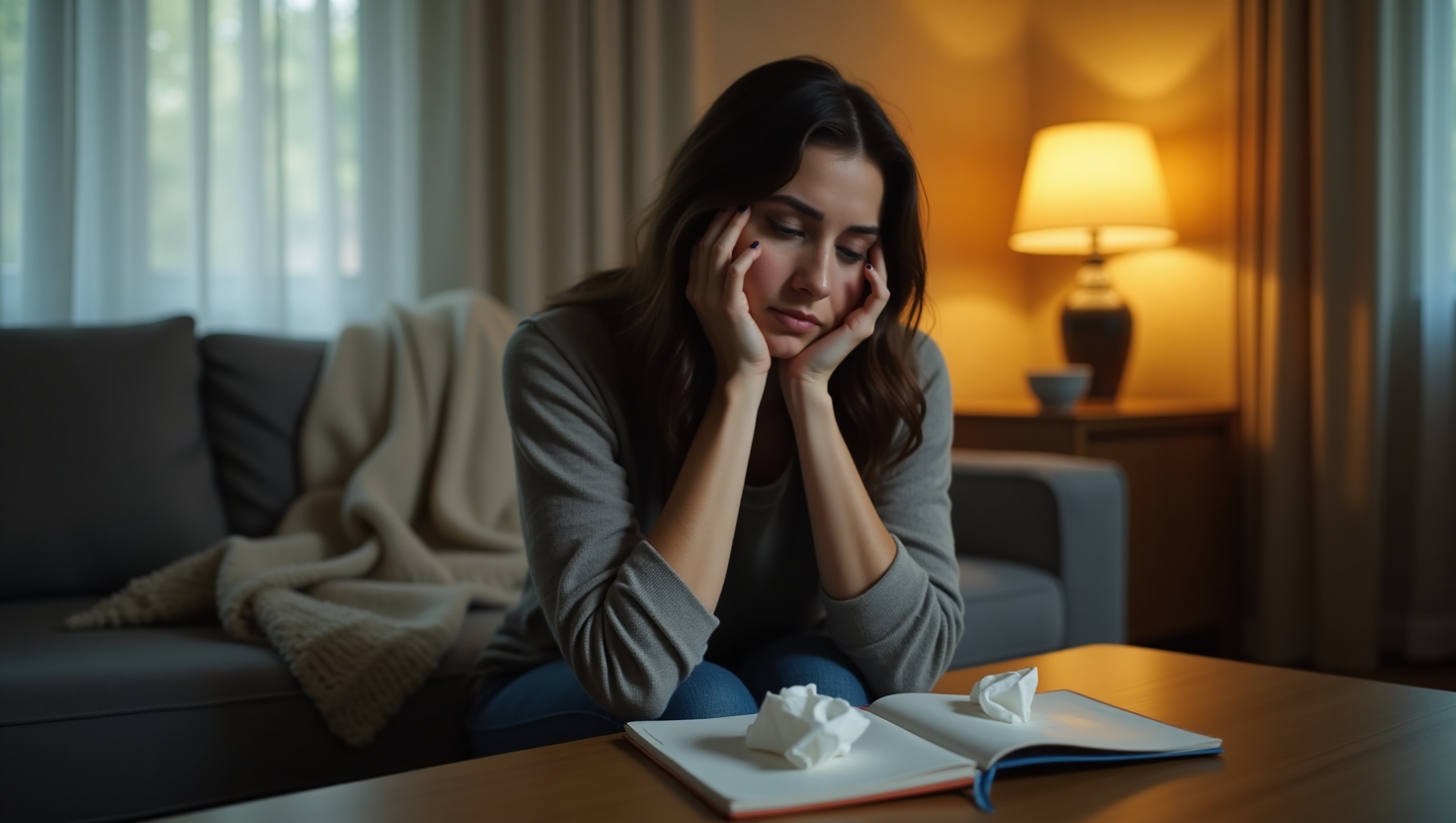Therapy can be a deeply transformative experience. It helps people process emotions and uncover insights about themselves. However, after a session, some individuals may feel emotionally drained or overwhelmed. This is known as a therapy hangover. Therapy hangover symptoms are common and part of the healing process. They occur because therapy encourages you to explore challenging thoughts and feelings.
It’s normal to experience discomfort after addressing issues you’ve carried for a long time. Understanding these symptoms can make it easier to navigate them. This phase is temporary and shows that progress is happening. Let’s explore what therapy hangover symptoms are and why they appear.
What Are Therapy Hangover Symptoms?
Therapy hangover symptoms refer to the emotional and physical reactions you may experience after a therapy session. These reactions vary from person to person. You might feel tired, anxious, or even sad. Sometimes, revisiting old wounds during therapy can stir up emotions you thought you had left behind.
These symptoms can also include a sense of vulnerability. Processing deep emotions takes effort, and your mind needs time to adjust. You might feel a mix of relief and unease as you work through your thoughts. Recognizing these signs is crucial in accepting that they are part of the journey toward better mental health.

Why Therapy Hangovers Happen
Therapy sessions often dive into personal matters, leading to emotional breakthroughs. While these breakthroughs are positive, they can leave you feeling drained. Therapy hangover symptoms arise because your brain is processing a lot of information.
During therapy, your emotions may become heightened as you work through challenges. This can leave you feeling mentally and physically exhausted afterward. It’s similar to how your body feels sore after an intense workout. Your mind needs time to heal and recover from this emotional workout.
Common Symptoms of a Therapy Hangover
Therapy hangover symptoms can manifest in different ways. You might feel emotionally raw, where even small things feel overwhelming. Fatigue is another common symptom. This occurs because your mind is working hard to process what happened during therapy.
Some people experience mood swings, shifting from feeling hopeful to sad in a short period. Others might feel mentally foggy, as if their thoughts are scattered. These symptoms are temporary and tend to lessen with time. Understanding that they are normal can help ease your worries.
How to Cope with Therapy Hangover Symptoms
Coping with therapy hangover symptoms involves self-care and patience. After a session, give yourself time to rest and recharge. Engage in activities that bring you comfort, such as reading, journaling, or taking a walk.
It’s helpful to practice mindfulness or deep breathing exercises. These techniques can calm your mind and reduce stress. Stay hydrated and eat nourishing foods to support your overall well-being. Remember, it’s okay to take a break from demanding tasks and focus on yourself.
Talking to your therapist about how you feel after sessions can also provide clarity. They can offer guidance and reassurance, helping you understand your emotions better.
Long-Term Effects of Therapy Hangover Symptoms
Therapy hangover symptoms may feel unsettling, but they can lead to significant growth in the long run. Each session allows you to uncover emotions, patterns, and beliefs that may have been hidden or ignored for years. The discomfort you feel after therapy is a sign that your mind and emotions are shifting, adapting, and healing.
Over time, the intensity of therapy hangovers may decrease as you grow more comfortable with the process. Your ability to process emotions improves, making it easier to manage feelings after each session. You might also develop greater self-awareness, resilience, and emotional clarity, which are essential for overall well-being.
It’s important to remember that the journey is unique for everyone. Regular self-reflection and commitment to the process will lead to positive outcomes despite the occasional emotional fatigue.
Building a Post-Therapy Routine
Creating a routine after your therapy sessions can help minimize the effects of a therapy hangover. Plan activities that relax you, such as meditating, cooking a comforting meal, or spending time with loved ones.
Journaling is a valuable tool for processing your thoughts. Write about what you discussed in therapy, how it made you feel, and what you learned. This practice can help you sort through lingering emotions.
If you enjoy physical activity, consider light exercises like yoga or stretching. These activities release tension and improve your mood. Additionally, setting aside time to rest ensures that you give your mind and body the recovery they need.
Therapy Hangovers Show Progress
While the term “hangover” often implies something negative, therapy hangover symptoms are not a setback. Instead, they highlight the depth of the work you’re doing to improve your mental health. Therapy is about peeling back layers to address root issues. This process can stir up deep emotions, but it ultimately leads to positive change.
As you continue with therapy, you may notice moments of clarity that make the discomfort worthwhile. These moments can come in the form of breakthroughs, improved relationships, or a better understanding of yourself. Every step forward, even through challenges, is a testament to your resilience and dedication.
The Role of Your Therapist in Managing Hangovers
Your therapist is your guide through the therapy process. If therapy hangover symptoms become overwhelming, share your concerns with them. They can adjust the pace of your sessions or suggest coping strategies to ease the intensity.
Therapists understand the emotional toll therapy can take. By discussing your feelings openly, you allow them to tailor the experience to your needs. This partnership helps you build trust, making it easier to navigate emotional challenges together.
Therapists can also teach techniques for grounding yourself after intense sessions. These might include visualization exercises, progressive muscle relaxation, or affirmations to calm your mind.
How Therapy Hangovers Impact Everyday Life
Therapy hangover symptoms can sometimes interfere with your daily activities, especially if they feel intense. You might notice difficulty concentrating at work or school or feel less motivated to engage in social interactions. These feelings are temporary but can be frustrating when trying to maintain your routine.
It’s important to set realistic expectations for yourself on therapy days. Avoid scheduling demanding tasks immediately after your session. Allow yourself some flexibility to rest and reflect. This way, you can honor the emotional work you’re doing without overwhelming yourself.
With time, you’ll likely find a balance between addressing therapy hangover symptoms and staying productive. Building this balance takes patience and self-awareness, but it’s a crucial step in integrating therapy into your life.

Benefits of Acknowledging Therapy Hangover Symptoms
Recognizing and accepting therapy hangover symptoms can make the process less daunting. By understanding that these reactions are part of healing, you can reframe the discomfort as a sign of progress.
Acknowledgment also reduces feelings of isolation. Knowing that these symptoms are common among therapy participants can provide comfort. It reminds you that others have experienced similar challenges and have successfully navigated them.
Acknowledging therapy hangovers also encourages you to develop effective coping mechanisms. When you take steps to care for yourself after sessions, you build emotional resilience. This resilience helps you manage future challenges more effectively.
How to Support Someone Experiencing Therapy Hangovers
If someone you care about is going through therapy hangover symptoms, your support can make a difference. Listen to them without judgment, and validate their feelings. Sometimes, simply being there for them can provide immense comfort.
Encourage them to take time for self-care. Suggest activities they enjoy or join them in relaxing pastimes like watching a favorite movie or taking a walk together. Avoid giving unsolicited advice or pushing them to talk if they’re not ready.
Remind them that their feelings are valid and that the discomfort is temporary. Express pride in their courage to face their emotions and seek help. This reassurance can strengthen their confidence in the therapy process.
The Long-Term Impact of Therapy on Mental Health
Though therapy hangovers can feel overwhelming, the long-term benefits of therapy far outweigh the temporary discomfort. Regular therapy can lead to improved emotional regulation, healthier relationships, and a deeper understanding of yourself.
As you process emotions and experiences, you become better equipped to handle challenges. Therapy also helps you identify unhealthy patterns and replace them with constructive habits. These changes contribute to overall mental well-being and a more fulfilling life.
The journey may be challenging at times, but the progress you make during therapy is invaluable. Overcoming therapy hangover symptoms is a reminder of your strength and commitment to personal growth.
Conclusion
Therapy hangover symptoms are a natural part of the healing process. They occur because therapy helps you confront emotions, memories, and thoughts that require attention. While the aftermath can feel draining, it’s a sign that meaningful progress is taking place.
By practicing self-care, maintaining open communication with your therapist, and showing compassion toward yourself, you can manage these symptoms effectively. Remember, therapy is a journey toward greater emotional health, and every step counts. Trust the process, and know that the temporary discomfort is paving the way for lasting change.
FAQs
1. Are therapy hangover symptoms a sign that therapy isn’t working?
No, therapy hangover symptoms are a sign that therapy is working. They show that you are processing emotions and making progress toward healing.
2. How long do therapy hangover symptoms last?
Most therapy hangover symptoms are temporary and last a few hours to a day or two. However, this can vary depending on the intensity of the session and the individual.
3. Can I prevent therapy hangover symptoms?
While you can’t completely prevent therapy hangover symptoms, preparing for sessions and practicing self-care afterward can reduce their impact.
















